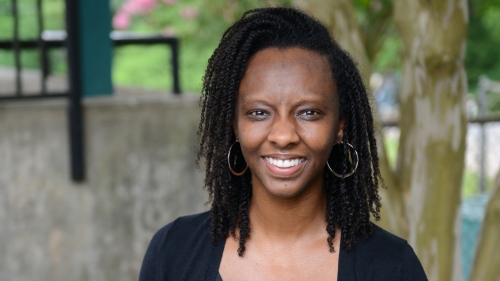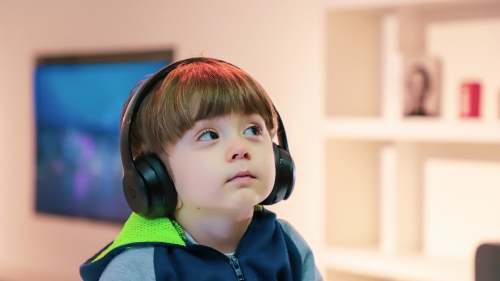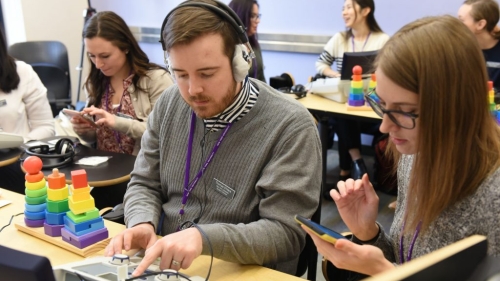Jonet Artis, assistant professor and Dean’s Faculty Fellow in the Department of Communicative Sciences and Disorders, is a speech-language pathologist whose research interests include early intervention for children diagnosed with autism and other developmental disorders. She is also interested in early interventions focused on the language development of young children. Her research has been published in Journal of Autism and Developmental Disorders, Journal of Special Education Technology, and The Spanish Journal of Psychology. We spoke to her about her current research.

Your most recent research looks at the disparities in the access and use of allied health services for children with autism spectrum disorders. Can you tell us about the study?
This study is focused on the use of allied health services – speech-language therapy, occupational therapy, and physical therapy – of children diagnosed with autism spectrum disorder (ASD). We investigated whether there were any differences in the number of services received based on race, age, the severity of ASD symptoms, geography, parent level of education, or parent income. We found that across studies, children with ASD were more likely to receive more allied health services if they were younger or if they demonstrated more severe symptoms of ASD.
Also, there were associations between parental socioeconomic status and the use of allied health services. Children who had parents with a higher income and higher parent education level were more likely to receive allied health services. This study continued to demonstrate the need for researchers to include the demographic data in their studies and also to provide details about how demographic variables relate to service access and use. Research on the factors that impact access to and the use of allied health services can help us to determine if additional efforts need to be in place to make sure that everyone is afforded the same opportunity to receive these services.
Research on the factors that impact access to and the use of allied health services can help us to determine if additional efforts need to be in place to make sure that everyone is afforded the same opportunity."
It strikes me that your study is also part advocacy on behalf of people with ASD. How might your findings influence public policy?
One of the long term goals of this study and many of my other research projects is to inform policy related to access to early identification and intervention services of underserved communities. Research studies investigating disparities in allied health services bring attention to factors that may contribute to differences in the use of these services. Therefore, I am hoping that studies such as these help influence policy that will make diagnostic and intervention services more easily accessible to everyone. In order to aid in this effort, I believe that studies should continue to investigate disparities in access and use of services and also ways to reduce, and perhaps eliminate these disparities.

Tell me about your current research.
I'm working on studies that are focused on the early language development of children diagnosed or at an elevated likelihood of a later diagnosis of ASD. In order to assist in efforts to determine the most appropriate interventions for this population, we must first understand the early language development of this population and factors that predict their language development. In addition to the work on early language development, I've also been working on a project in which we explored the coaching behaviors that interventionists use with caregivers within coaching interventions. In order to individualize interventions to meet the needs of the clients we serve, not only should we focus on the strategies that should be targeted in these interventions, but we should also understand how to best deliver those interventions to families. The goal of these projects, together, is to contribute to research that helps us to determine which language interventions will be the most beneficial for children diagnosed with ASD who also have language disorders.
Related Department

Communicative Sciences and Disorders
665 Broadway, 9th floor
New York, NY 10012
Phone: 212-998-5230
